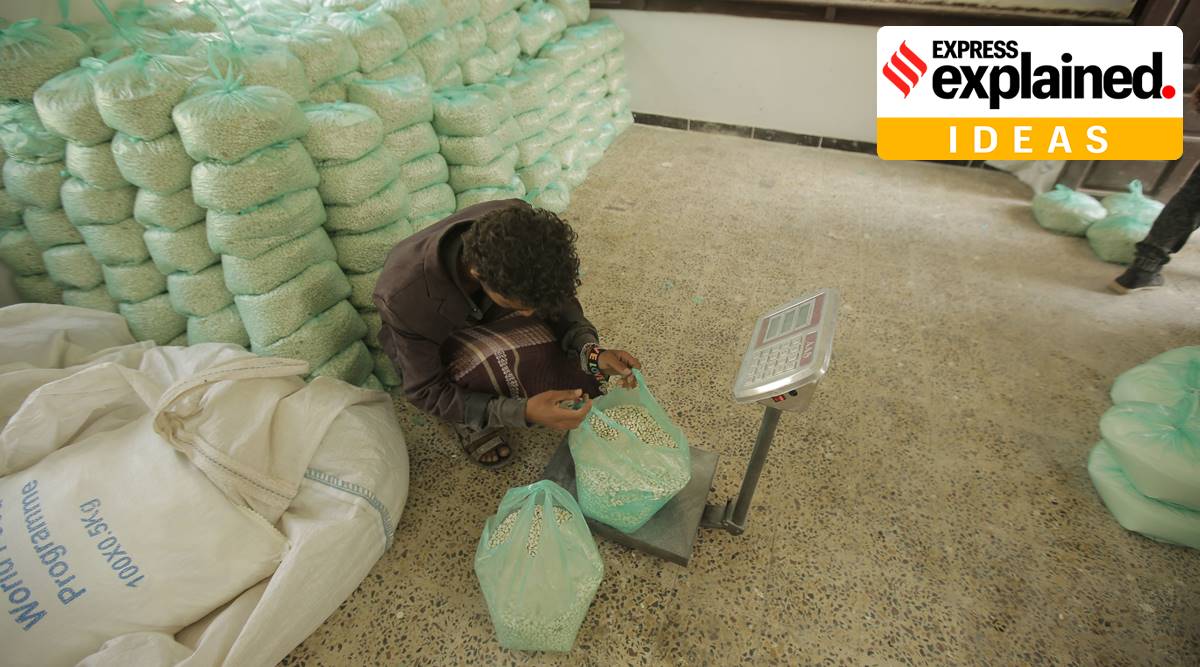Hunger is not inevitable: It is man-made and there are victims and perpetrators, write Swati Parashar and Camilla Orjuela.
The recent announcement of the 2020 Nobel Peace Prize to the World Food Programme (WFP), one of the largest humanitarian organisations addressing hunger and promoting food security, is a step forward in recognising the seriousness of the global food crisis.
“It draws attention to the sustained efforts to fight hunger and famine from the grassroots to the highest levels of global governance,” state Swati Parashar and Camilla Orjuela, both associated with Peace and Development Research at the School of Global Studies, Gothenburg University, Sweden, in their opinion piece in The Indian Express.
While recognising those who struggle to ban nuclear weapons, restrict arms production and arms trade, and prevent conflict through diplomacy may seem directly relevant for the peace prize, putting focus on the consequences of war is also an important part of working towards peace and the well-being of people, they argue.
The Nobel committee has further stressed the link between armed conflict and hunger. Almost 80 per cent of all chronic malnourished children inhabit countries affected by armed conflict.
Also in Explained | How Nobel Peace Prize 2020 winner WFP has combated hunger around the world
The ongoing coronavirus pandemic has exacerbated the problem of food insecurity and famines. It is anticipated that the number of hungry people could increase to 270 million under the impact of the pandemic, with the most acute suffering and starvation experienced in conflict zones.
Wars constrain people’s mobility, create black markets and restrict people’s access to food, making it either unavailable or too expensive. War-related displacement causes people to be removed from their cultivable land so that they cannot grow food, and it diverts resources from people’s welfare towards the war effort.
“Apart from the significance of the connections between war and hunger, we also believe that eradicating hunger needs to be a focus in its own right,” they state. “Hunger is not inevitable: It is man-made and there are victims and perpetrators. Those perpetrators include — but are not restricted to — state actors who, through what they do or what they fail to do, contribute to starvation,” they state.
? Express Explained is now on Telegram. Click here to join our channel (@ieexplained) and stay updated with the latest
Hunger has been India’s bane in colonial times and also since Independence. While debates about the Bengal and other British-era famines are getting some attention now, we need to focus on the hunger threats and food insecurity that independent India continues to face, they state.
? The Indian Express is now on Telegram. Click here to join our channel (@indianexpress) and stay updated with the latest headlines
For all the latest Explained News, download Indian Express App.
Source: Read Full Article


